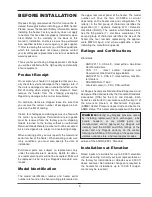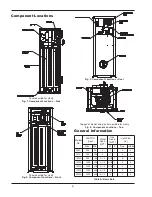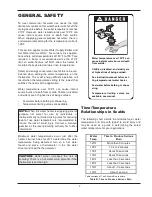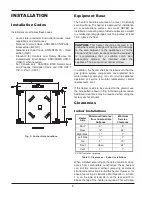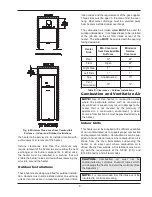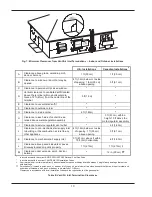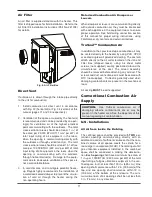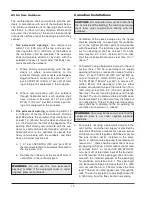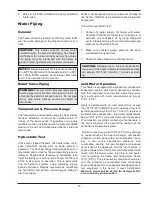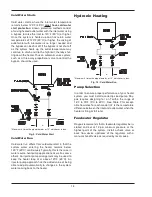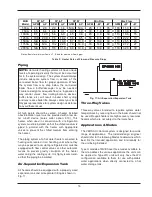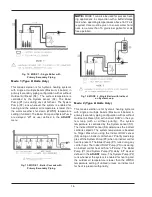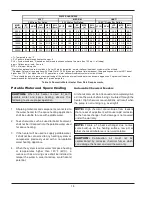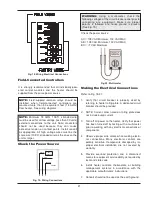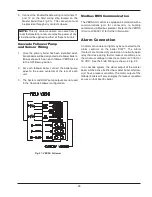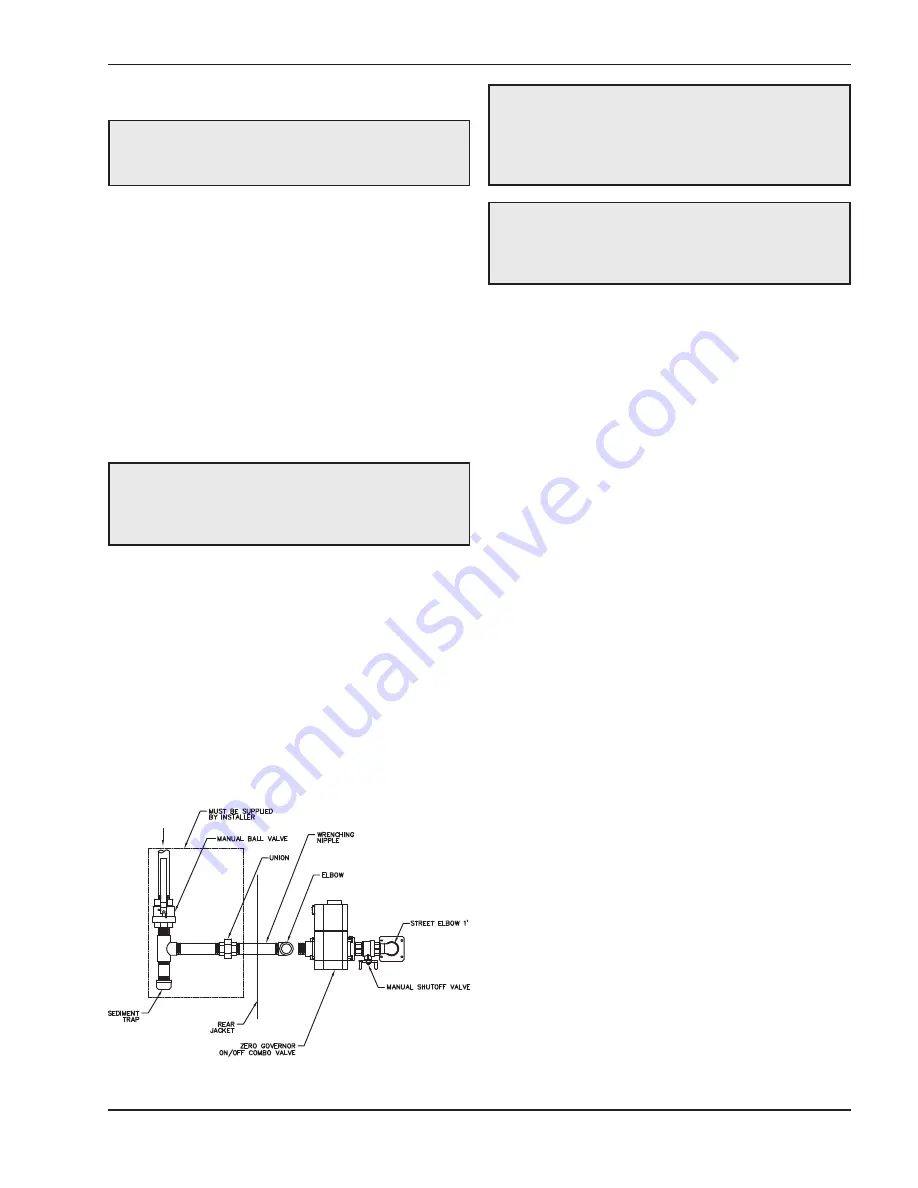
19
Gas Supply
Gas piping
must
have a sediment trap ahead of the
heater gas controls,
and
a manual shut-off valve lo-
cated outside the heater jacket. It is recommended
that a union be installed in the gas supply piping adja-
cent to the heater for servicing. The gas supply
pressure to the heater must not exceed 10.5 in. WC for
natural gas or 13.0 in. WC for propane gas. A pounds-
to-inches regulator must be installed to reduce the gas
supply pressure if it is higher than noted above. This
regulator should be placed a minimum distance of 10
times the pipe diameter upstream of the heater gas
controls. Refer to Table H for maximum pipe lengths.
Gas Supply Connection
The heater must be isolated from the gas supply pip-
ing system by closing the upstream manual shut-off
valve during any pressure testing of the gas supply
piping system at test pressures equal to or less than
1/2 psi (3.45 kPa). Relieve test pressure in the gas
supply line prior to re-connecting the heater and its
manual shut-off valve to the gas supply line.
FAILURE
TO FOLLOW THIS PROCEDURE MAY DAMAGE
THE GAS VALVE
. Over-pressurized gas valves are
not covered by warranty. The heater and its gas con-
nections shall be leak-tested before placing the
appliance in operation. Use soapy water for leak test.
DO NOT use an open flame.
DANGER:
Make sure the gas on which the heater
will operate is the same type as specified on the
heater’s rating plate.
CAUTION:
The heater must be disconnected from
the gas supply during any pressure testing of the gas
supply system at test pressures in excess of 1/2 psi
(3.45 kPa).
Gas Supply Pressure
A minimum of 4.0 in. WC upstream gas pressure
under full load and a maximum gas supply pressure
setpoint of 10.5 in. WC under load and no-load condi-
tions for natural gas. A minimum of 4.0 in. WC
upstream gas pressure under full load and a maximum
gas supply pressure setpoint of 13.0 in. WC is required
for propane gas. The gas pressure regulator(s) sup-
plied on the heater is for low-pressure service. If
upstream pressure exceeds 1/2 psi at any time, an
intermediate gas pressure regulator, of the lockup
type, must be installed. This regulator should be
placed a minimum distance of 10 times the pipe diam-
eter upstream of the heater gas controls.
When connecting additional gas utilization equipment
to the gas piping system, the existing piping must be
checked to determine if it has adequate capacity for
the combined load.
The gas valve pressure regulator on the heater is
nominally preset as noted in Table I.
During normal operation, carbon dioxide should be
9.0% ± 0.2% at full fire for natural gas and
10.2% ± 0.2% for propane gas. Carbon monoxide
should be ‹100ppm at all firing rates, measured at the
test port, 12” above the flue collar.
Fig. 17: Gas Supply Connection
CAUTION:
Do not use Teflon tape on gas line pipe
thread. A pipe compound rated for use with natural
and propane gases is recommended. Apply
sparingly only on male pipe ends, leaving the two
end threads bare.
CAUTION:
Support gas supply piping with
hangers, not by the heater or its accessories. Make
sure the gas piping is protected from physical
damage and freezing, where required.
Содержание 503A
Страница 43: ...43 WIRING DIAGRAM Models 503A 2003A...
Страница 59: ...59...
Страница 60: ...60 www raypak com Raypak Inc 2151 Eastman Avenue Oxnard CA 93030 805 278 5300 Fax 805 278 5468 Litho in U S A...

